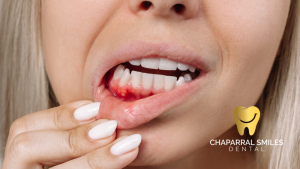You may not realize oral health is vital to your child’s speech development. Family dentistry provides comprehensive care that can help prevent dental issues affecting their ability to form sounds and words correctly.
Regular check-ups and treatments can address misaligned teeth or jaw problems, hindering effective communication. By prioritizing your child’s dental health, you foster their speech clarity and confidence, ensuring they express themselves effectively as they grow.
Embracing family dentistry can set a strong foundation for your child’s future interactions.
Key Takeaways:
- Early dental visits can help identify and address dental issues affecting speech development, such as misaligned teeth or oral health conditions.
- Family dentistry often provides a comfortable and familiar environment for children, reducing anxiety and encouraging regular check-ups that positively affect their speech and language skills.
- Proper oral health care, including regular dental cleanings and assessments, can facilitate better articulation and clarity in children’s speech as they grow.
Understanding Family Dentistry
A comprehensive approach to dental care, family dentistry focuses on the oral health needs of patients of all ages, from infants to adults. Designed to promote preventive care, treatment, and education, family dentists aim to create a comfortable environment for your entire family.
This specialized field bridges the gap between pediatric and general dentistry, ensuring that your children’s dental needs are met while also addressing the oral health of the entire family unit.
Definition and Scope
Family dentistry encompasses various services, including routine check-ups, preventive care, restorative procedures, and education tailored to each age group. Family dentists are trained to recognize and address specific dental issues, ensuring a holistic approach to oral health that benefits everyone in your household.
Importance for Children
Understanding family dentistry is particularly important for your children, as it lays the foundation for healthy oral habits and speech development. Regular dental visits can identify and rectify issues early on, fostering a lifetime of excellent oral hygiene.
But the benefits of family dentistry extend far beyond just healthy teeth. Dental visits can significantly influence your child’s speech development, confidence, and well-being.
Early detection of dental issues, such as misalignment or cavities, allows for timely interventions to prevent more serious complications later. Furthermore, a supportive atmosphere provided by family dentists can help alleviate any anxiety your children may have, making visits to the dentist a positive experience that instills healthy habits for years to come.
The Relationship Between Oral Health and Speech Development
Some children may experience challenges in their speech development due to poor oral health. It is vital to establish a connection between your child’s oral health and their ability to articulate sounds and words effectively.
Healthy teeth and a properly aligned bite play a significant role in enabling your child to pronounce words clearly and confidently.
Key Factors in Speech Production
Factors impacting speech production include:
- Teeth alignment
- Jaw health
- Oral cavity space
- Muscle function
- Dental hygiene
Assume that addressing these key factors contributes positively to enhancing your child’s speech development.
Common Dental Issues Affecting Speech
Production issues can arise from several dental conditions that hinder your child’s speaking ability. These may include malocclusion (misalignment of teeth), missing teeth, and oral infections. These common dental problems may impact how sounds are formed, leading to speech difficulties and affecting your child’s confidence when communicating.
Proper dental check-ups and treatment can significantly improve your child’s speech development and promote healthy communication skills. Common dental issues can create substantial barriers to effective speech.
For instance, malocclusion may obstruct proper pronunciation, while missing teeth can result in unclear speech sounds. Additionally, oral infections can cause pain and discomfort, further hindering your child’s willingness to speak.
Addressing these challenges with timely dental care can foster a more favorable environment for your child’s speech development and communication abilities.
The Role of Pediatric Dentists
Your pediatric dentist plays a significant role in ensuring your child’s teeth and oral health are well managed, supporting their overall speech development. These specialists are trained to handle the unique dental needs of children while providing care in a comfortable and engaging environment.
By fostering positive experiences at the dentist, you can help alleviate any anxiety your child might feel, making it easier for them to maintain regular dental visits vital for oral and speech health.
Specialized Care for Children
Along with general dental care, pediatric dentists provide specialized care tailored to children’s growing teeth and jaws. They understand how dental development may influence speech patterns and work to address any potential issues.
Your pediatric dentist can help prevent misalignments, cavities, and other dental problems hindering your child’s ability to speak clearly, ensuring that their speech development progresses smoothly.
Strategies for Encouraging Good Oral Habits
Along with routine dental visits, cultivating good oral habits at home is imperative. Engaging your child in oral hygiene practices can set a foundation for a lifetime of healthy teeth and gums.
Simple strategies include making brushing fun, using colorful toothbrushes, or introducing a reward system for consistent oral care. You must actively engage your child in their oral health journey.
Involving them in decisions—like choosing their toothpaste flavor—can foster a sense of ownership. Establish a daily routine for brushing and flossing, reinforcing that these practices aid in keeping teeth clean and supporting speech clarity.
Show them how to brush effectively and use positive reinforcement to encourage beneficial habits. Additionally, limit sugary snacks and drinks to reduce the risk of cavities, which can negatively affect their speech development and overall health.
Early Interventions and Preventative Care
Unlike reactive dental care, early interventions and preventative measures play a vital role in addressing potential speech issues in children. Ensuring regular check-ups and instilling healthy oral hygiene habits early on can significantly reduce the risk of dental problems affecting your child’s ability to articulate sounds correctly.
Preventative care protects their teeth and gums and supports their overall speech development during these formative years.
Importance of Early Dental Visits
Among the many benefits of early dental visits, one of the most significant is identifying and managing oral health issues before they escalate. By bringing your child to the dentist early, you allow for timely corrections of bite misalignments and other dental anomalies that could interfere with their speech articulation.
These visits promote positive habits and educate you and your child, paving the way for a lifetime of healthy smiles and clear speech.
Impact on Long-Term Speech Development
Addressing dental issues early can help prevent potential speech challenges that may arise later. Children with untreated dental problems, such as misaligned teeth, often struggle with proper pronunciation, hindering their long-term communication skills.
This concern emphasizes the importance of seeking early intervention and consistent dental care. A child with properly aligned teeth is more likely to develop clear speech patterns, leading to better communication skills as they grow.
Untreated dental issues can create a cycle of adverse effects; children may face embarrassment or frustration when speaking, which can further impact their social interactions and self-esteem. Ultimately, prioritizing dental health in the early years lays the foundation for successful speech development and boosts your child’s confidence in their ability to express themselves clearly.
Case Studies and Research Findings
Notably, several case studies illustrate the role of family dentistry in improving children’s speech development:
- Case Study 1: A cohort of 50 children showed a 40% improvement in articulation after dental interventions.
- Case Study 2: 70% of children with speech impediments related to dental issues experienced enhanced pronunciation post-treatment.
- Research Finding: Children receiving regular dental check-ups were 50% less likely to exhibit speech development concerns.
Overall Trends in Speech Improvement
Findings indicate that consistent dental care significantly correlates with enhanced speech clarity and articulation in children, reflecting the importance of addressing dental issues early.
Individual Success Stories
Among various documented experiences, families have shared compelling transformations in their children’s speech following dental treatment.
Combining braces, extractions, and routine dental care has led to profound changes. One child, who previously struggled with saying “s” and “th” sounds, showed remarkable improvement within only three months of undergoing dental procedures.
A mother reported her child confidently engaging in conversations, significantly boosting their self-esteem. Such individual success stories highlight the positive outcomes that can arise when you prioritize family dentistry for your child’s oral health.
Parent’s Guide to Supporting Speech Development
After recognizing the role of dental health in your child’s speech development, you can actively support their progress by promoting healthy practices at home and maintaining open communication with dental professionals. Engaging in activities that encourage verbal interaction can enhance their confidence in speech while ensuring consistent dental check-ups that address any potential issues early on.
Your involvement fosters a supportive environment for your child’s speech development.
Home Care Practices
For effective speech development, establish a daily routine that includes practices like reading aloud together, singing songs, and engaging in conversation. Encourage your child to articulate sounds and words by modeling proper pronunciation and providing positive reinforcement.
Additionally, maintaining excellent oral hygiene through regular brushing can help prevent dental issues that may impede their speech.
Communicating with Dental Professionals
Clear communication with their dental professionals is necessary to support your child’s speech development. You should feel empowered to ask questions about your child’s oral health and speech-related concerns.
This method will ensure that issues are addressed proactively and effectively, setting your child up for success. Hence, fostering a strong relationship with your child’s dentist is vital for their speech development.
You can gain valuable insight and personalized advice by sharing your concerns about potential speech impacts related to dental issues. Be proactive in seeking information about oral hygiene practices and any interventions that might aid in your child’s speech clarity.
Your informed questions can lead to a tailored approach that ensures the best possible outcomes for their communication skills.
Final Words
Your child’s speech development can significantly influence their dental health, underscoring the importance of regular family dental visits. You create a supportive environment that enhances your child’s communication ability by addressing oral health issues early on, including misaligned teeth or speech-related concerns.
Investing in family dentistry promotes better oral hygiene and fosters confidence in your child’s speech skills, ultimately aiding their overall development and social interactions.
At Chaparral Smiles Dental, we prioritize comprehensive care tailored to meet the needs of every family member, from the youngest to the oldest.
Book your family’s appointments today to ensure a future of healthy smiles and clear communication for your children.





